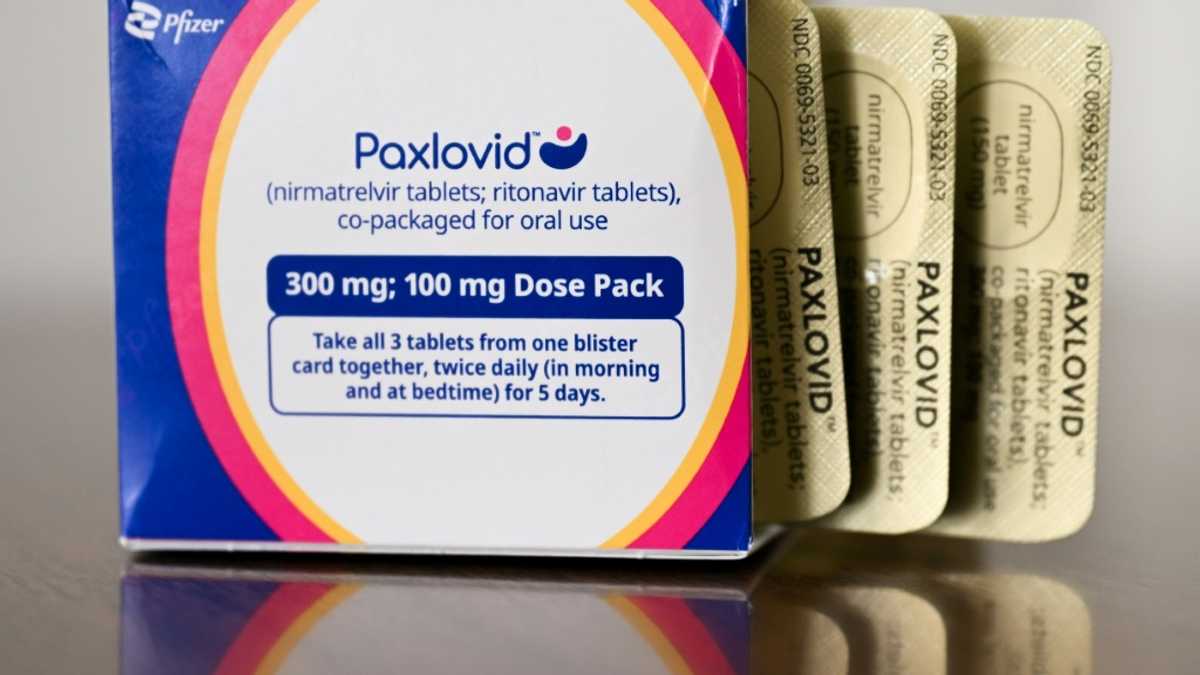Silent Killers: How sugar-sweetened beverages lead adolescents to early grave

Chizoba, an adolescent and undergraduate, has an unquenchable appetite for sugar sweetened beverages (SSB). A day hardly ends without her gulping at least a bottle.
“I take one to two bottles daily, especially during school days, depending on how the weather is. I hardly take any during the weekend,” the fair complexioned undergraduate said.
For her, the addiction to SSBs is “mostly meant to satisfy the craving for it. Sometimes it is because it can accompany any form of snack.”
Chizoba said on the average, she spends about N3,000 on SSBs in a week. In one month, she would have spent about N12,000 on her choice drink, and at the end of every year, the soft spoken young lady would have spent at least N144,000, using the prevailing price per unit.
Aside from the ephemeral sweetness Chizoba derives from consuming her choice SSBs, she hardly could point to any other gain she gets from her obsession for the drinks as SSBs hardly quench thirst.
“I rather have a number of health challenges that come with the consumption of those drinks,” she said, triggering some curiosity in our correspondent.
Chizoba saw through the shock on our correspondent’s face and yelled, “yes” in affirmation of what she just said.
“I do have gaseous ulcer, sometimes it leaves me bloated. And I guess it increases my menstrual pain,” shs added.
In spite of the known danger and damage that SSBs do to her body, Chizoba has not deemed it expedient to put an end to her obsession for them.
Her disturbing experience is just a case of how SSBs are silently destroying and leading adolescents to their early graves.
Checks show that Chizoba is not alone in this craze for SSBs. Hordes of adolescents in the society, those in higher institutions in particular, are hooked on them. It is water for their food and the icing on the cake for their snacks.
In some cases, it is used as a status symbol to show the consumer is ‘rocking life to the fullest’.
This, no doubt, explains why Nigeria ranks fourth globally in SSB consumption with an annual sale of approximately 38.6 million litres in a market valued growth rate of 16.63 per cent in 2023.
Health experts have linked excessive consumption SSBs to Nigeria’s non-communicable diseases (NCDs) burden.
NCDs are said to be responsible for about 41 million deaths a year, equivalent to 71% of all deaths globally.
According to a report by BMC Public Health about the fatalities caused by NCDs, “17.9 million are attributable to cardiovascular diseases (CVDs), 9.3 million to cancer, 4.1 million to respiratory diseases, 1.5 million to diabetes, and the remaining 8.2 million to other NCDs.
“About 47% of deaths from NCDs are premature, and most of the deaths (31.4 million) occur in low and middle-income countries (LMICs), which now face a double burden of infectious diseases and NCDs.”
Disturbing as these revelations are, Fehintola, a 16-year-old, appears unperturbed and seems to have signed a pact with SSBs. Like Chizoba, a day hsrdly passes without her consuming a bottle.
“I take SSBs very often. How many times I take it a day depends on the weather. If the weather is hot, I do take chilled drinks,” she said.
Her addiction to SSBs, unfortunately, comes at a price. “I do have cramps, but then, I still take SSBs,” she said without an iota of concern about the effects on her health.
Speaking on how much she spends on SSBs, Fehintola said: “I spend between N2,000 and N3,000 weekly.”
Also speaking with our correspondent, Dammy, a 17-year-old, said: “I take SSBs almost every day. I take them because they are sweet.
“I just like to take them. Any time I feel tired, I just take SSBs and feel better.”
On how she feels after consuming the drinks, Dammy said: “SSB consumption could make me stool and frequent the restroom. If I take it excessively, I may have heartburn.”
Our encounter with male adolescents showed that they equally have strong fondness for SSBs.
One of the respondents, who gave his name simply as Shola, said he takes SSBs at least once a day.
“I wouldn’t finish a meal without one,” he said emphatically.
Speaking in the same vein, another respondent, Ben, said he takes SSBs almost every day.
“I just take them for refreshment,” he said.
Studies have shown that cases of diabetes are on the rise among adolescents in the country.
A report on ‘Prevalence of diabetes mellitus among students’ listed Nigeria, among the 10 highest number of countries with the number of new cases of T1DM (children and adolescents less than 20 years. The report said: “In Africa, the incidence and prevalence of DM are shown to be on the increase among children and teenagers. The estimated number of children < 20 years with T1DM in the African region was 50,200. Nigeria, Algeria, and Morocco have been listed among the 10 highest number of countries with the number of new cases of T1DM (children and adolescents <20 years), per year in the world.”
It noted that the current trend suggests a possible escalation of DM among children and adolescents in Africa shortly. Children and adolescents <19 years are part of the population of secondary schools in Africa. Various studies have reported the prevalence of T1DM among secondary school students in Africa. For instance, a cross-sectional study in Cameroon reported the prevalence of TIDM to be 1.8% among students while a study in Nigeria reported the prevalence of Impaired Fasting Glucose to be 17.30% and a further study in Nigeria detailed the prevalence of T1DM among students to be 0.3%.”
The report added that another study among girls in selected boarding secondary schools in the Wakiso district of Uganda showed a prevalence of pre-diabetes to be 6.40% and a cross-sectional study in Nigeria reported the prevalence of T1DM among students to be 0.6% and 28.70% for prediabetes.
“Also, a study investigating the prevalence of T1DM among school-age children in the Menoufia governorate in Egypt found the overall prevalence of T1DM to be 3.75/1000 Besides, few studies have reported the prevalence of T2DM among adolescents in the general population in Africa However, as at the time of putting this review together, there was the paucity of studies of T2DM carried out among primary and secondary school students in Africa.”
Another study titled ‘Prevalence of pre-diabetes and risk factors among secondary school adolescents in Osogbo Local Government Area, Osun State, Nigeria’ concluded that prediabetes is becoming common problem among Nigerian adolescents and advised that “There is therefore need for stakeholders to face this challenge before it becomes endemic.
Medical practitioners have raised concerns about the despicable contributions of SSBs to non-communicable diseases (NCDs) burden in the country. The experts fear that the country could have a large army of chronically sick adolescents if nothing is done to curb their consumption of SSBs.
According to Harvard T. H. Chan of the School of Public Health, SSB refers to any beverage with added sugar or other sweeteners (high fructose corn syrup, sucrose, fruit juice concentrates, and more). “This includes soda, pop, cola, tonic, fruit punch, lemonade (and other “ades”), sweetened powdered drinks, as well as sports and energy drinks.”
Non-communicable diseases (NCDs), also known as chronic diseases, according to UNICEF, are non-transmissible diseases of often long duration. “Examples of NCDs include mental health conditions, stroke, heart disease, cancer, diabetes and chronic lung disease.”
Speaking on the effects of SSBs on cardiovascular health of adolescents, a cardiologist, Dr John Atshamen, flayed the ravaging effects of the drinks on the immune system.
He explained: “There’s natural sugar, and there’s free sugar. The natural sugars are all those naturally produced like, fresh juice, honey, etc. The free sugars “They increase the risk of cardiovascular disease. It is not recommended that we go for these free sugars. We usually would recommend that we take as low as possible as part of what we are eating.”
Free sugars, according to Dr John, increase the risk of weight gain and obesity.
“If you look at a lot of children now, especially those that are exposed to a lot of carbonated drinks, the frequency of childhood obesity is increasing, and the frequency of dental cavities are increasing.
“You see obesity in countries that patronise these lots of added artificial sugars, like the U.S. They are suffering the plague or pandemic of childhood obesity.
“This is now progressing to West Africa and even to Nigeria, where we see a lot of children now becoming obese because they are taking a lot of these carbonated drinks.
“What this does is that these sugars, even though they may be a source of calories, tend to affect the immune system and they tend to affect the cholesterol components in the body.
“Apart from weight gain, they can also cause some problems for the blood vessels, increase the risk of stroke, increase the risk of diabetes, increase the risk of even heart failure.”
He added that the risk of childhood diabetes, which is also a risk for cardiac problems, has been increasing.
“So, increased consumption of these sugary products will lead to increased cardiovascular risk. There’s no doubt about that.
“There are a lot of research that shows that there has been association between this carbonated or free sugar, increased sugar intake and worsening cardiovascular risk, increasing risk of stroke, increasing risk of diabetes, either pre-diabetes or over-diabetes.
“Some forward thinking or progressive countries have been hammering or stressing on the need to reduce these products or even to add them to the labels so that you see what you are taking.
“A lot of these carbonated drinks have a minimum of eight cubes of sugar.
“Some people would say 15 or 20 cubes, but documented research shows about a minimum of eight point something cubes of sugars in them.
“Just imagine licking eight cubes of sugar and how it will feel.
“These sugars tend to increase the bad cholesterol in the person’s body and reduce the good cholesterol.
“When cholesterol levels are high, they can increase the risk of cardiac problems.”
From experience, he said, “I have seen a lot of patients that have been having increased childhood hypertension.
“But for a lot of patients that have cardiac diseases, whether children or adults, one of the first things that we prescribe in the management of this condition is lifestyle modification.”
SSB consumption is said to also be a contributory factor in certain mental health challenges.
Explaining how this happens, Dr Abayomi Seun, a psychiatrist at Federal Neuro- Psychiatric Hospital, Aro, Abeokuta, the Ogun State capital, noted that consumption of SSBs can affect the mental health of adolescents in several ways.
According to him, adolescence is a period of rapid physiological growth and psycho-social development, where they grapple with a lot of stress about changes in their bodies, increasing academic workload, struggles with peers and parents and societal pressures.
“Not surprisingly, about one out of seven adolescents suffer from a mental health challenge. And 50% of all mental health challenges in adulthood already show symptoms by age 14 years.
“With this background, you can understand why the mental health of adolescents demands special attention,” he said.
Quite frankly, Dr Abayomi said, many factors contribute to mental health struggles among adolescents rather than one singular factor such as intake of sugar-sweetened beverages. “However, research has increasingly shown that aggressive intake of sugar-sweetened beverages contribute to mental health problems such as aggression, depression and anxiety disorders.”
From his wealth of experience, he said, adolescents who consume loads of sugar-sweetened beverages – even though they suffer from poor mental health – hardly present to the hospital with addiction to sugar beverages.
“Instead, it is other problems that bring them to hospital, such as anxiety and panic disorders, depressive disorders and substance use problems.
“It is usually in the course of managing them for these other conditions that we discover that their intake of sugar-sweetened beverages is unusual.
“It is important to note that the consumption of sugar-sweetened beverages alone cannot explain their mental health problems. It is only one of numerous other factors that interact in complex ways to contribute to mental illness.
“By and large, with adequate support both for the adolescents and their parents and guardians, they can be helped to either quit or reduce to the barest minimum.”
A dentist, Dr Francis Fagbule, in a chat with our correspondent, warned against the destructive effects of SSBs on the teeth.
He said: “People should know that SSBs contribute almost nothing useful to them when they take it. They are only packing in sugar and acidic content that are not beneficial to their bodies.
“The potential health problems are enormous, particularly when those products are taken habitually.”
“Explaining how SSBs harm oral health, Dr Francis said: “There are micro-organisms in the mouth normally. They act on this sugar and feed on it.
“The process of glycolysis whereby they turn the carbohydrates into acid usually starts in the mouth.
“That acid from these micro-organisms are able to start dissolving the tooth, and that is how the process of initiating dental cavity (hole in the tooth) starts.”
SSBs, according to him, contain essentially sugar with little or no nutritive value. “It is basically just saying let’s put sugar in a cup, pour water into it and add some colouring.
“If we keep taking SSBs habitually, it increases the risk and also causes dental caries.
“Many of these drinks are carbonated and that means they are produced even to be acidic.
“When we drink them we feel their sharpness in our mouth.
“When you take these drinks and run your tongue on the surface of your teeth, you will find that they feel rough at that particular time. That is because of the erosive nature of those drinks.
“This is not just about the sugar that the bacterial or micro-organisms will convert to acid. Even the acidic content of some of these SSBs is also contributing to this problem.”
He warned that “if we continue consuming them, we are only increasing the risk and will eventually come down with dental caries.
“If you take a few sips of SSBs and you feel that roughness on your teeth, after about 30 minutes or one hour, if you run your tongue on the teeth surfaces, it will be smooth again. This is because the saliva production which is normally alkaline has taken care of that situation and restored the surface of the tooth back to normal.”
Addressing a common practice among the young ones, he said: “If you give a child a drink and he takes a little and keeps the rest in the fridge and goes back to sip after an hour and does that almost throughout the day, what that child is doing is that he is keeping the environment of the mouth in a very acidic state for a long period.”
Speaking on how SSBs affect the gum, Dr Francis said: “When you continue taking SSBs, you are feeding the micro-organisms. As you are eating it, the micro-organisms are also eating it.
“When you continue to feed on SSBs, micro-organisms feed on that and help in the formation of plaques.
“When plaques stay in the mouth for a long time it becomes very hardened such that it is difficult for you to remove it when you brush your teeth.
“All this put together causes irritation to the gum. When the gums get irritated then it gets infected, it is red and swollen. Sometimes it becomes painful.
“That is why when some people are brushing, they will notice blood coming out from their gum.
“SSB encourages direct and indirect accumulation of plaques which then results in irritation or infection of the gum, causing gum diseases.”
If this is not taken care of very fast, Dr Francis said, it will progress to “what we call periodontitis, meaning it will start getting deeper and deeper.
“The teeth are held in place by the gum. If the gum gets weakened, you will find out that the tooth is shaking and can even remove.”
Shedding light on nutritional dangers of SSBs, a freelance and holistic nutritionist cum CEO of Osa Food and Solution Ltd, Obembe Oluwaseun, said SSBs often exceed daily recommendations and are linked to various health problems.
“SSBs often contain more than the daily recommended intake of sugar. Consuming high amounts of sugar has been linked to obesity, type 2 diabetes, and heart disease.”
Obembe noted that SSBs also have the tendency to displace essential nutrients, adding: “Regularly consuming SSBs can lead to an imbalanced diet, displacing more nutritious beverages like milk, 100% fruit juice, and water.
“SSBs also lack essential vitamins and minerals. They are often devoid of essential vitamins and minerals, providing empty calories.”
Providing information on how SSBs impact on gut health, the nutritionist said they alter gut microbiome.
“Consuming SSBs can alter the balance of gut bacteria, leading to changes in metabolism and immune function.
“SSBs also Increase inflammation. The high sugar content in SSBs can lead to increased inflammation in the body, exacerbating chronic diseases.
“SSBs contribute to weight gain and obesity. Regular consumption of SSBs has been linked to weight gain and obesity and increased risk of chronic diseases.
“Consuming SSBs regularly has been linked to an increased risk of heart disease, stroke and type 2 diabetes.”
To check the ravaging effects of SSBs on the consumers, adolescents in particular, Obembe advised that Nigerians should limit or avoid consuming SSBs altogether.
“They should choose water and unsweetened beverages or opt for unsweetened tea or coffee instead of SSBs.
“Consumers should check the ingredient list and nutrition label to ensure the beverage you choose is low in added sugars,” he said.
A tax expert and partner at Ascension Consulting Services, Adeniyi Sunmola, has shared his thoughts on how to curb consumption of SSBs among adolescents.
Beginning with how efforts are being made globally to check SSB consumption using taxation, Adeniyi said: “Governments worldwide have adopted various taxation strategies on SSBs to reduce their consumption and mitigate NCD risks such as obesity, diabetes and cardiovascular diseases.
“In Nigeria, the following taxation strategies have been implemented:
“Excise taxes; The Nigerian government (Finance Act, 2021 to Section 21 of the Customs, Excise Tariffs, etc (Consolidation) Act (CETA) introduced a ₦10 per litre excise tax on non-alcoholic, sugar-sweetened beverages in 2022 as part of fiscal measures to discourage excessive consumption and improve public health.
“Ad Valorem taxes – While not widely implemented for SSBs in Nigeria, taxation based on the product’s price could make more expensive sugary drinks costlier, potentially deterring consumption.
“Tiered Tax System – Nigeria has not fully adopted a tiered tax system, but such a structure could impose higher tax rates on beverages with higher sugar content while lower-sugar options face reduced or no taxation.
“Flat Tax System – The existing ₦10 per litre tax follows a flat taxation model, meaning all sugary beverages are taxed equally regardless of sugar concentration.
“Import Duties on SSBs – Nigeria imposes tariffs on imported sugary drinks, which can serve as an incentive for local production while also influencing the affordability of these products.”
These taxation strategies, according to Adeniyi, aim to discourage consumption, encourage reformulation by manufacturers, and generate revenue for public health initiatives.”
He noted that in spite of the implementation of taxes on SSBs, several challenges persist in Nigeria.
“There is low tax rates on SSB in Nigeria. The ₦10 per litre tax may not be sufficient to significantly affect consumer behaviour, as the price increase is relatively low compared to disposable income levels.
“Again there is ineffective implementation of policies. Weak enforcement by regulatory agencies limits the full impact of taxation.
“Another challenge here is industry resistance and lobbying. Beverage companies in Nigeria have resisted tax increases, arguing that it negatively impacts business and employment.”
Continuing, Adeniyi also identified consumer behaviour adaptation as an obstacle to curbing SSB consumption.
His words: “Many Nigerians may switch to alternative sugary beverages, including locally produced drinks, which are often not taxed at the same rate.
“Another factor is Lack of Public Awareness. “Many Nigerians remain unaware of the relationship between excessive sugar consumption and NCDs, reducing the effectiveness of taxation as a deterrent.
“Cross-border smuggling and tax evasion are another forms of challenges. “The porous nature of Nigeria’s borders allows for smuggling of untaxed sugary beverages from neighbouring countries.”
Lastly, he said limited use of tax revenue for public health constitutes an obstacle to using tax to reduce SSB consumption. “Currently, there is no clear earmarking of revenue from SSB taxation for health programmes, reducing its potential impact on public health initiatives.”
To enhance the effectiveness of SSB taxation and reduce consumption in Nigeria, Adeniyi suggested raising SSB taxes beyond the current ₦10 per liter to at least a 20% increase in the final retail price, in line with WHO recommendations.
“Regulatory agencies such as the Federal Inland Revenue Service (FIRS) and the Nigerian Customs Service should enforce stricter monitoring to curb tax evasion and ensure compliance.
“Government and health agencies should conduct nationwide campaigns to educate Nigerians on the health risks of SSBs and how taxation discourages excessive consumption.
“Providing tax incentives for local beverage manufacturers to produce low-sugar or sugar-free alternatives can offer healthier choices to consumers.”
He added that implementing a tiered tax system could also check SSB consumption, saying “Nigeria could introduce a system that taxes beverages based on sugar content, ensuring that highly sugary drinks face higher levies.
“Restricting advertisements targeting children and adolescents, as well as enforcing clearer nutritional labelling, can also help reduce SSB consumption.”
Adeniyi also advised that Nigeria should collaborate with neighbouring countries in West Africa to harmonise SSB taxation policies and reduce smuggling and “allocating funds from SSB taxes to obesity prevention, diabetes care, and nutrition education would increase public health benefits.”
He expressed optimism that “if these solutions are effectively implemented, Nigeria can achieve significant reductions in the consumption of sugar-sweetened beverages and curb the rise of non-communicable diseases in the population, particularly among adolescents.”










